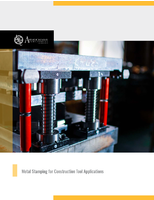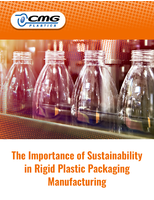Dodd-Frank Regulations found 100X more costly than SEC estimate.
Share:
Press Release Summary:
Tulane University economic analysis assesses cost of implementing Dodd-Frank conflict minerals regulation to be $7.93 billion, exceeding estimate prepared by U.S. Securities and Exchange Commission (SEC) of $71.2 million. Tulane analysis compared SEC estimates to findings of study by National Association of Manufacturers (NAM) and also relied on data gathered by IPC survey of manufacturers in electronics supply chain. Study also supports issues raised by IPC and other industry commenters.
Original Press Release:
Tulane University Study Finds Dodd-Frank Conflict Minerals Regulations to be One Hundred Times More Costly than SEC Estimate
BANNOCKBURN, Ill., USA - A Tulane University economic analysis, which drew heavily on an IPC survey of the electronics industry, assessed the costs of implementing the Dodd-Frank conflict minerals regulation to be $7.93 billion - more than one hundred times greater than the estimate prepared by the U.S. Securities and Exchange Commission (SEC) of $71.2 million. The study, "A Critical Analysis of the SEC and NAM Economic Impact Models and the Proposal of a Third Model in View of the Implementation of Section 1502 of the 2010 Dodd-Frank Wall Street Reform and Consumer Protection Act," was prepared at the request of U.S. Sen. Dick Durbin of Illinois, a co-sponsor of the conflict minerals provisions included in the Dodd-Frank Wall Street Reform and Consumer Protection Act.
"The Tulane study underscores the need for the SEC to be conscious of the high costs of implementation," says Tony Hilvers, IPC vice president of industry programs. "The SEC must utilize all reasonable options to lessen the burden of implementation, the most important of which is a phasing-in of the regulations to allow industry the time to work with their complex global supply chains to develop traceability and compliance data."
The Tulane analysis compared the SEC estimates to the findings of a study by the National Association of Manufacturers (NAM). It also relied on data gathered by the IPC survey of manufacturers in the electronics supply chain. The analysis was conducted by Tulane graduate student Chris Bayer with contributions from Dr. Elke de Buhr of the Payson Center for International Development at Tulane University Law School.
According to Bayer, "Evidence is the best guide, and our economic impact analysis of Dodd-Frank Section 1502 relies on findings from IPC's 2011 survey. The new law calls for transparency in the mineral sector supply chain and our paper suggests that its implementation will require significant effort on the part of affected companies."
IPC's report, "Results of an IPC Survey on the Impact of U.S. Conflict Minerals Reporting Requirements," was part of a set of extensive comments submitted by IPC for the SEC's Notice of Proposed Rulemaking. The survey, which was conducted by IPC's market research department, collected data from 60 electronics manufacturing services companies, printed circuit board manufacturers, electronics materials suppliers and equipment suppliers.
The Tulane study also supports issues raised by IPC and other industry commenters, including the need to establish, for a transition period, a category for conflict minerals whose origin cannot be determined. The regulations proposed by the SEC require that conflict minerals be identified as either conflict free or as associated with conflict. A legal brief, filed by WilmerHale® on behalf of IPC, outlined the SEC's authority to adopt a phase-in approach, by both virtue of the statutory text of Section 1502 of the Dodd-Frank Wall Street Reform and Consumer Protection Act and the Commission's general exemptive power under the Securities Exchange Act of 1934.
The Tulane University economic analysis may be viewed at tinyurl.com/3bl8ntg. For more information about the IPC survey and IPC initiatives in the area of conflict minerals, visit http://www.ipc.org/minerals.
About IPC
IPC (www.IPC.org) is a global trade association based in Bannockburn, Ill., dedicated to the competitive excellence and financial success of its 3,000 member companies which represent all facets of the electronics industry, including design, printed board manufacturing, electronics assembly and test. As a member-driven organization and leading source for industry standards, training, market research and public policy advocacy, IPC supports programs to meet the needs of an estimated $2.02 trillion global electronics industry. IPC maintains additional offices in Taos, N.M.; Arlington, Va.; Stockholm, Sweden; Moscow, Russia; Bangalore, India; and Shanghai, Shenzhen and Beijing, China.




